
SOLAR: The Ute Mountain Ute Tribe expects to break ground later this year on a planned 756 MW solar installation on its land in southwestern Colorado. (KSUT)
ALSO: A California lawmaker introduces legislation that would require state regulators to consider all economic and environmental benefits of rooftop solar when setting net metering rates. (PV Magazine)
CLEAN ENERGY:
UTILITIES:
OIL & GAS: Occidental Petroleum predicts its plan to inject captured carbon into its Permian Basin oil and gas wells will increase crude production by as much as 12,000 barrels daily by 2026. (E&E News, subscription)
PIPELINES: Tribal nations and advocates push back against a proposed pipeline that would carry Permian Basin natural gas to an export terminal in Mexico, saying it threatens sacred sites and could fuel the LNG boom. (DeSmog)
ELECTRIC VEHICLES:
CLIMATE:
GRID: Los Angeles’ municipal utility votes to move forward with joining California’s grid operator’s extended day-ahead power market. (RTO Insider, subscription)
WIND: Oregon commercial fishermen and Indigenous communities criticize the Biden administration’s finalization of wind energy areas off the state’s southern coast, saying the federal agency failed to account for potential impacts. (Oregonian)

Companies have a smoother road for getting management to greenlight clean energy projects now than they did five years ago, thanks to corporate climate commitments, federal incentives and more.
And if last month’s turnout of more than 800 people for the Greater Cleveland Partnership’s sustainability summit is any guide, businesses want support and guidance on navigating a process that is more compelling yet also more complex than it was years ago. The Jan. 23 program drew twice as many attendees as last year’s inaugural event.
Sustainability “is a major market trend at this point. It’s a massive market opportunity,” said Baiju Shah, president and chief executive officer for the Greater Cleveland Partnership, which is one of the United States’ largest metropolitan chambers of commerce. At the same time, sustainability is crucial if businesses want to stay competitive in a global marketplace, he said.
Roughly a third of the Greater Cleveland Partnership’s largest member companies have pledged to be carbon neutral by 2050, according to Emily Keller, GCP’s manager of sustainability initiatives. And, she added, practically all member companies have committed to some environmental sustainability practices.
Those pledges and goals have an impact when it comes to getting the green light for clean energy projects, especially when companies report on their progress towards environmental, social and governance objectives.
“Explaining an energy efficiency project [to management] or even being able to get a renewable energy project across the finish line five years ago was much different than what it is today,” said Rebecca Karason, the environment and sustainability director for Huntington National Bank. Decisions on three solar arrays for the company were based on economic factors, but a good part of the decision also hinged on the company’s renewable energy commitment, she said.
Ideally, clean energy projects add to businesses’ bottom lines.
“At its core, the development and the analysis of these projects is no different than any other capital project, but it is a complicated process,” said Gino Scipione, whose practice with Cohen & Company centers on compliance and financial reporting.
For any project, “you have to be able to prove at its core that it’s going to return value,” Scipione said. Most projects are capital expenditures, so for accounting purposes they get capitalized and depreciated over time, instead of being treated as an expense for a single year. How much comes from equity versus debt financing affects the calculations, too.
Beyond the general tax considerations that enter into any business deal, companies should also consider if a project can qualify for tax credits under the Inflation Reduction Act’s clean energy incentives, Scipione noted. Those reductions in tax liability reduce the total cost for a project. And larger tax credits are available if projects are located in disinvested or energy communities and satisfy other requirements. In some cases, there also may be an opportunity to sell renewable energy credits, or RECs, which can provide income to further offset costs.
All of that, for example, means a company can see savings sooner from an investment in solar energy compared to the costs of otherwise purchasing electricity from the grid.
“The amount of money that I’ve seen in the last two years coming from the federal government is really helping,” said Rishabh Bahel, Nestlé’s manager of energy and sustainability for North America, who is based in Solon, Ohio. The company has announced it plans to power all its operations sites with renewable electricity by 2025, and one of its strategies has been investing in solar farms.
If a project meets enough requirements for the Inflation Reduction Act’s tax credits, “essentially you can get 40 to 50% paid by the government,” Bahel said. “So you have to make sure you’re looking at all the incentives and plans available in the market.”
Energy efficiency is another big emphasis for Nestlé.
“Any time you’re saving energy, you’re saving money,” Bahel said.
Those energy savings cut the costs of production and support the business case for the investment. In contrast, if companies merely pay for carbon offsets, “that really doesn’t have any payback,” he said.
Businesses in disinvested neighborhoods also need the economics of clean energy projects to work, because a company with too much debt won’t succeed, said Michael Jeans, CEO of Growth Opportunity Partners and its GO Green Energy Fund. He and others at Growth Opps often guide companies through the financing process and provide advice to help them make projects succeed.
Even as financial incentives boost the business case for clean energy investments, companies also face added compliance requirements for reporting greenhouse gas emissions.
“It’s sort of a carrot and stick,” said Kaitlin Bergan, head of sustainable client solutions for BlackRock’s U.S., Canadian and Latin American team, as she reported on overall trends in industry.
In 2022, the Securities and Exchange Commission issued proposed rules for publicly traded companies to report on climate risks and their contributions to greenhouse gas emissions. The rule will likely be finalized sometime this spring. The European Union already has adopted reporting requirements for some companies. And as Karason sees it, reporting requirements will trickle down even to smaller companies.
Reporting requirements can be a challenge, especially if different customers need data reported in different formats, said attorney Richik Sarkar, Dinsmore & Shohl’s ESG equity partner in Cleveland. Yet as sustainability managers do that, he suggested they also should think about how to explain projects to their companies’ financial officers.
So, Sarkar challenged: “How do you make the business case and explain to them it’s not only a matter of doing good, but it’s a matter of doing well?”
To be sure, not all companies are moving ahead on clean energy projects. About 50 attendees walked out during Bergan’s talk, as a protest against BlackRock’s continuing investments in fossil fuels. And last week, FirstEnergy reneged on its commitment to reduce greenhouse gas emissions 30% by 2030.
Craig Ickler is an energy democracy organizer for Cleveland Owns, which was among the groups organizing the protest. With BlackRock being an exception, Ickler felt the Greater Cleveland Partnership is “talking about sustainability seriously.” He also wants more involvement of local neighborhoods in energy projects and decisions. “My focus is as much on removing fossil fuels from the energy equation as it is about who’s going to own those clean energy assets and who’s going to benefit from them,” he said.
Emily Bacha, vice president of public affairs for the Ohio Environmental Council, also attended the Jan. 23 conference. She said she saw “real momentum to push forward equity in climate and sustainability strategies” — something she wouldn’t have expected ten years ago.
Now Bacha and others will be watching to see what further strides companies make. “It’s important that we’re not just talking the talk, but walking the walk across all sectors,” she said.
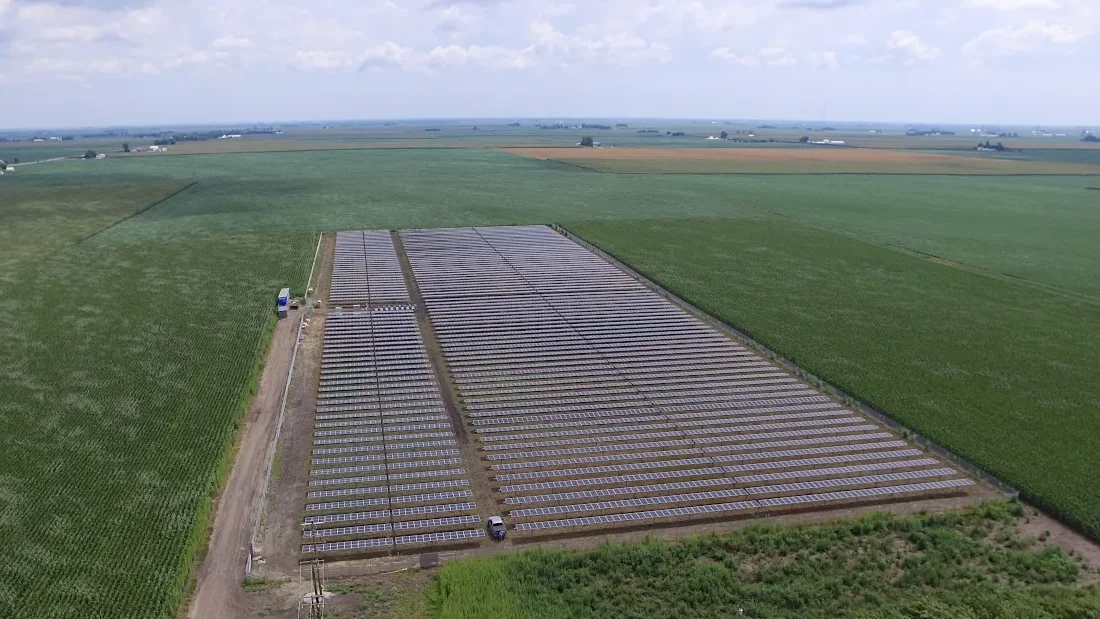
RENEWABLES: At least 15% of U.S. counties have halted new wind and solar projects through moratoriums, outright bans and construction impediments, making projects harder to build amid new clean energy targets. (USA Today)
COAL: A newly formed Michigan advocacy group wants a local government to buy a retiring Consumers Energy coal plant along Lake Michigan and keep it operating as a first step to create a municipal utility. (MLive)
BIOMASS: Two Michigan wood-fired biomass plants are set to close in the coming months as a utility seeks cheaper power options, raising questions about the future of the industry in Michigan. (Crain’s Grand Rapids Business)
OVERSIGHT:
OIL & GAS: A 2011 Ohio law keeps details about the companies bidding to frack under state parks and wildlife areas confidential. (Cincinnati Enquirer)
ELECTRIC VEHICLES: DTE Energy proposes a nearly $125 million plan to boost electric vehicle charging in low and moderate-income communities by providing rebates to residents and businesses. (Planet Detroit)
FINANCE: A group of Wisconsin state pension holders press a state investment board to divest from all fossil fuel-related funds. (Wisconsin Examiner)
PIPELINES:
POLITICS: A nonprofit funded by Michigan’s largest utilities contributed at least $600,000 to three fundraising accounts tied to Michigan Democrats the year before sweeping clean energy laws narrowly passed the legislature. (Detroit News, subscription)
CARBON CAPTURE: A company hopes its plan to capture carbon emissions from a fertilizer production plant to be stored underground will serve as a model for the industry. (Indianapolis Star)
SOLAR:

SOLAR: Duke Energy prepares to offer new rebates in North Carolina for rooftop solar arrays paired with batteries, which along with federal incentives could create a new wave of business for solar installers even after Duke reduced net-metering credits. (Energy News Network)
ALSO: An Arkansas city board agrees to move forward with development of a 4.9 MW solar farm that officials hope will provide 70% of the power for city operations. (Arkansas Democrat-Gazette)
ELECTRIC VEHICLES:
POLITICS:
CARBON CAPTURE: Southeastern Louisiana University deploys four buoys to monitor the ecosystem of a lake where a company wants to inject carbon dioxide captured from a blue hydrogen facility. (The Advocate)
OIL & GAS:
COAL: Private club property owned by West Virginia Gov. Jim Justice will be auctioned off to satisfy more than $300 million in unpaid loans issued by a Virginia bank for the Justice family’s coal, agricultural and hospitality businesses. (Cardinal News)
ENVIRONMENTAL JUSTICE: Community advocates rally to support a historically Black community in Alabama that’s seen repeated flooding problems since the state expanded a nearby highway. (Inside Climate News)
FINANCE: A multi-month pause in operations by a state-approved clean energy home improvement lender in Florida last year has caused problems for a couple who installed an air conditioning unit but haven’t been able to pay the contractor. (WKMG)
NUCLEAR: A truck carrying low-level nuclear waste catches fire on Interstate 40 near Nashville, leading to the revelation that up to 75% of low-level radioactive waste in the U.S. goes to Tennessee for processing. (WKRN)
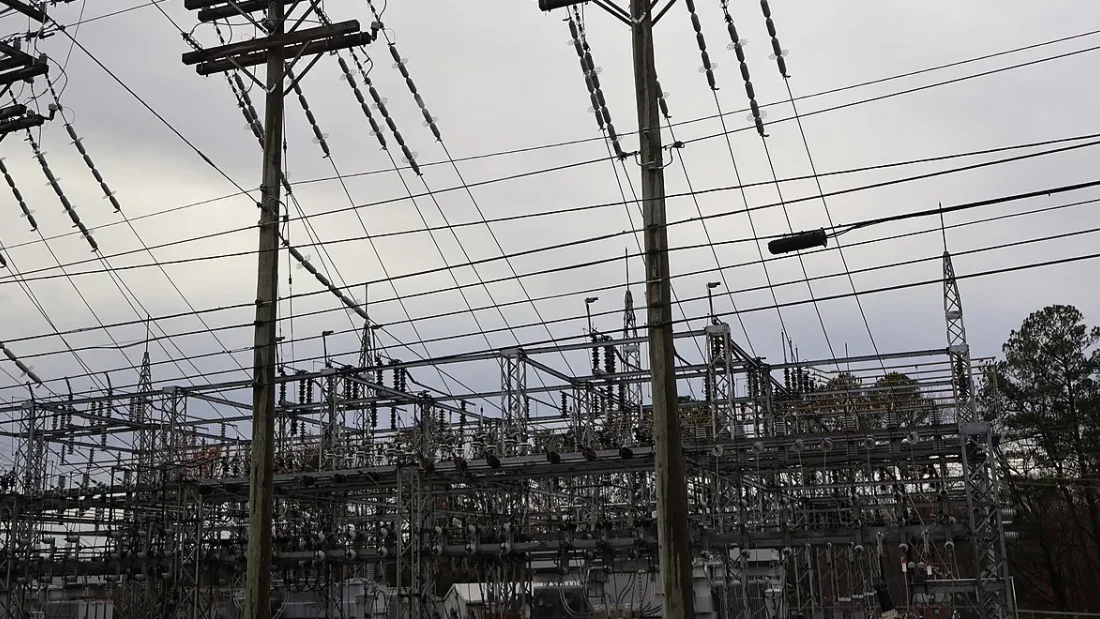
GRID: Renewable energy developers say they are navigating a complex and congested electric grid in Minnesota to get their generation delivered to customers. (MPR News)
ALSO: The Biden administration will require some cryptocurrency mining facilities to report their energy use based on grid concerns with the energy-intensive industry. (Inside Climate News)
POLITICS: Illinois lawmakers who received campaign contributions from utilities deny a quid pro quo for supporting a new Illinois law that lifted the state’s moratorium on new nuclear plant construction. (Journal Star)
POWER PLANTS: Union members rally in support of a proposed northern Wisconsin gas plant that has divided local residents and elected officials. (Northern News Now)
ELECTRIC VEHICLES:
PIPELINES: Northern Iowa county officials share frustrations about not being reimbursed for pre-engineering and other site preparation activities related to a proposed carbon pipeline. (Globe Gazette)
AIR POLLUTION: The Biden administration’s proposed limits on soot would result in cleaner industrial facilities, power plants and vehicles in Illinois, experts say. (Chicago Tribune, subscription)
SOLAR: A developer plans 26 community solar projects averaging 3 MW in size that will feature pollinator habitats across Illinois. (PV Magazine)
UTILITIES: Detroit-based DTE Energy’s CEO predicts the utility will need to build a large Michigan gas plant with carbon capture technology as part of its long-term generation mix. (Crain’s Detroit Business, subscription)
COMMENTARY: A South Dakota landowner whose property includes a portion of the Dakota Access pipeline issues a warning about carbon pipelines that she says would similarly obstruct property rights. (South Dakota Searchlight)

POLICY: A Vermont legislative committee advances a bill to increase the state’s utility renewable energy standard to 100% by 2030. (VT Digger)
ALSO:
GRID:
BUILDINGS:
OFFSHORE WIND:
SOLAR:
CLIMATE: Maine snowmobiling clubs detail how shorter, warmer winters are derailing their enjoyment of their pastime. (Bethel Citizen)
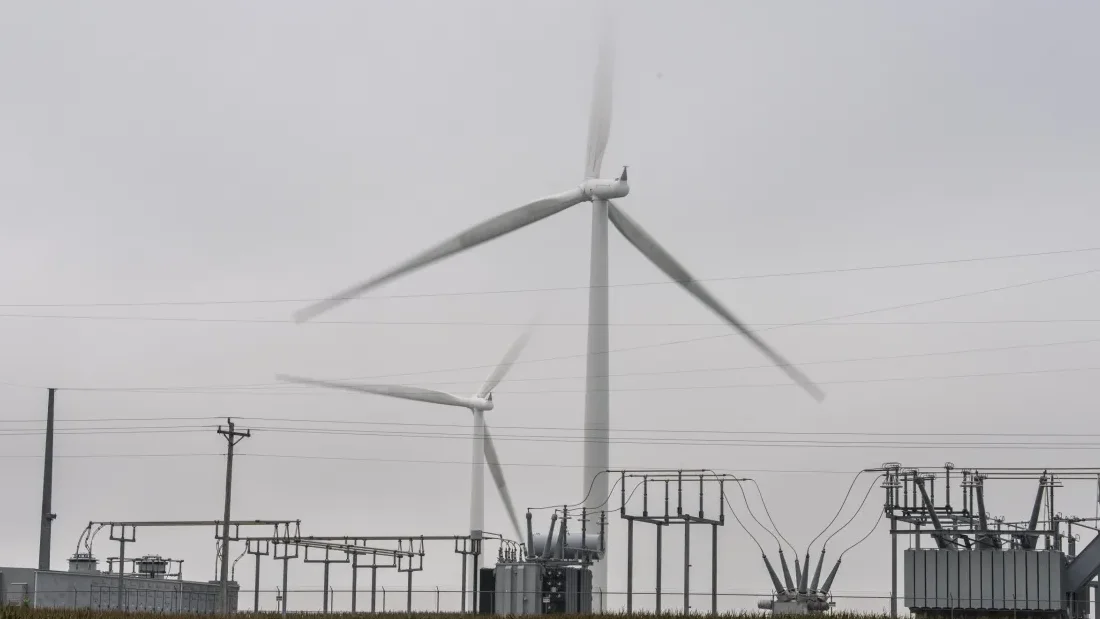
HYDROGEN: Environmental advocates warn that weakening proposed rules on federal hydrogen tax credits could divert existing clean energy generation to hydrogen production and prolong fossil-fuel-fired generators. (Energy News Network)
ALSO: The pending federal tax credits, along with nearby wind energy generation, could support hydrogen production in Wisconsin, a clean energy researcher says. (WBAY)
POWER PLANTS: We Energies wants to build a $1.2 billion natural gas peaker plant on the site of a retiring Lake Michigan coal plant. (Journal Sentinel)
PIPELINES:
WASTE-TO-ENERGY: Environmental groups propose an expedited timeline to close a Minneapolis trash incinerator by the end of next year, though local officials remain concerned about the trash being sent to landfills. (Star Tribune)
COAL: The U.S. EPA has detected groundwater contamination from metals and other inorganic compounds at roughly 150 coal ash disposal sites. (Inside Climate News)
SOLAR:
AIR POLLUTION: All of Minnesota, including the Twin Cities metro area, already complies with the EPA’s new, tighter soot pollution thresholds. (Minnesota Reformer)
GRID:
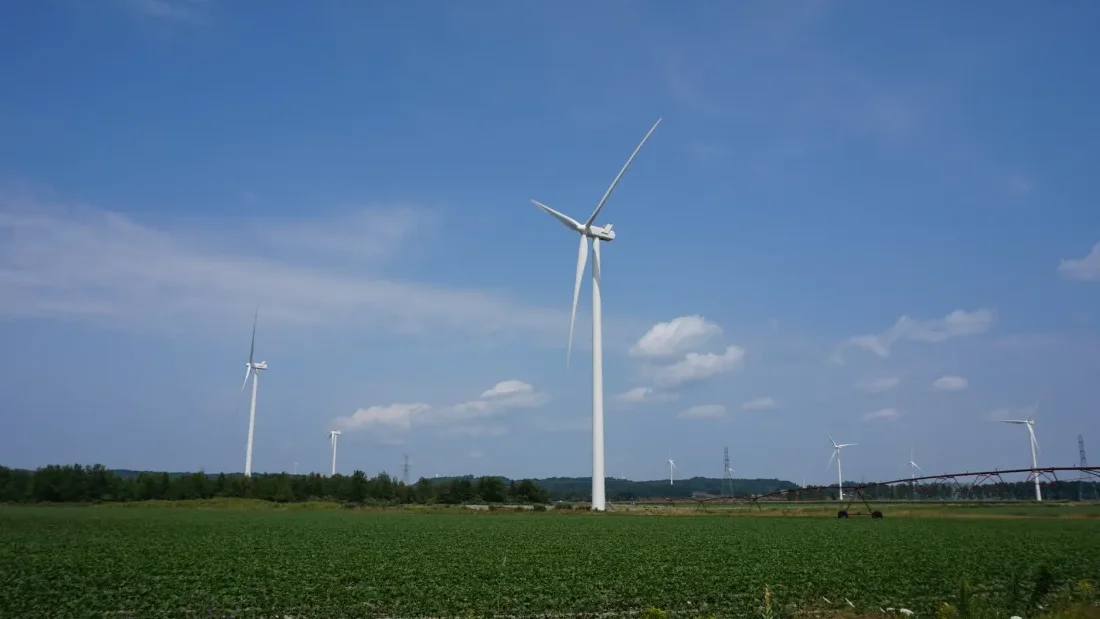
CLEAN ENERGY: Arizona regulators vote to repeal the state’s energy efficiency and renewable portfolio standards, saying the market should guide corporations. (12 News)
UTILITIES:
OIL & GAS: New Mexico Democratic lawmakers introduce legislation urging regulators to study the risks for people living near oil and gas facilities after well-setback language was stripped from another bill. (Carlsbad Current-Argus)
POLLUTION: California officials expect about half of California’s counties to be out of compliance with the new U.S. EPA standards for fine particulate matter, or soot. (Mercury News)
SOLAR:
ELECTRIFICATION: California, Colorado and Oregon sign an agreement with six other states to promote electric heat pump sales. (Verge)
TRANSPORTATION: Colorado lawmakers propose overhauling the state’s largest transit agency to better align it with broader housing and climate initiatives. (Daily Camera)
ELECTRIC VEHICLES:
GRID:
NUCLEAR: Industry observers predict a slight uptick in domestic uranium mining could give a proposed advanced nuclear reactor in Wyoming a boost. (Wyoming Public Radio)
MINING: Federal wildlife officials consider extending endangered species protections to a snail found only in springs near the Thacker Pass lithium mine in Nevada. (news release)
CLIMATE: Conservationists challenge the federal government’s 2016 management plan for Glen Canyon Dam, saying it failed to consider climate change’s impacts on water levels and hydropower production. (Courthouse News)
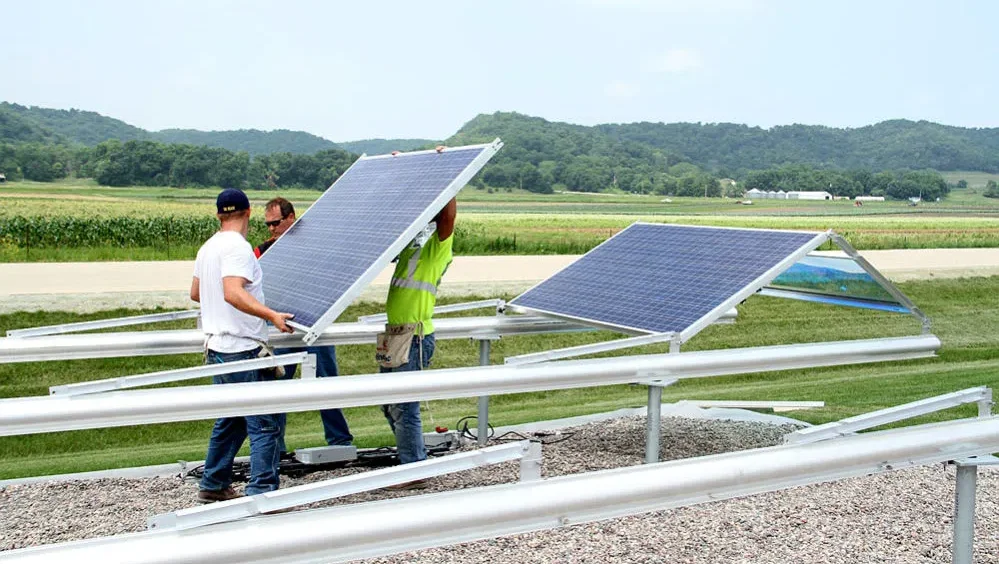
SOLAR: Minnesota community solar developers are retooling their business plans as the state’s program undergoes some of the biggest changes since its launch over a decade ago. (Energy News Network)
ALSO:
ELECTRIC VEHICLES:
RENEWABLES: The University of Wisconsin-Madison announces a new campus-wide sustainability plan that includes achieving 100% renewable electricity by 2030. (Wisconsin State Journal)
PIPELINES:
NUCLEAR: Michigan Gov. Gretchen Whitmer’s budget proposal seeks another $150 million to help reopen the shuttered Palisades nuclear power plant, but critics say the money would be better spent on energy efficiency, renewable energy, or public transit. (Bridge Michigan)
MINING: Minnesota Democrats introduce a bill to restrict certain mining practices in the Boundary Waters Canoe Area watershed that the industry says will limit access to essential materials for clean energy. (Minnesota Reformer)
COAL: DTE Energy schedules demolition dates for its Trenton, Michigan, coal power plant, with the first phase set for March 1. (ClickOnDetroit)
POLLUTION: Minnesota officials begin the process of implementing the state’s new “cumulative impacts” law for regulating pollution in environmental justice areas, but questions remain about its definitions. (MinnPost)
CLIMATE:
BIOFUELS: The Ohio House passes a bill to create a temporary 5 cents per gallon tax credit for sales of E15 and higher ethanol blends. (Crawford County Now)
COMMENTARY:
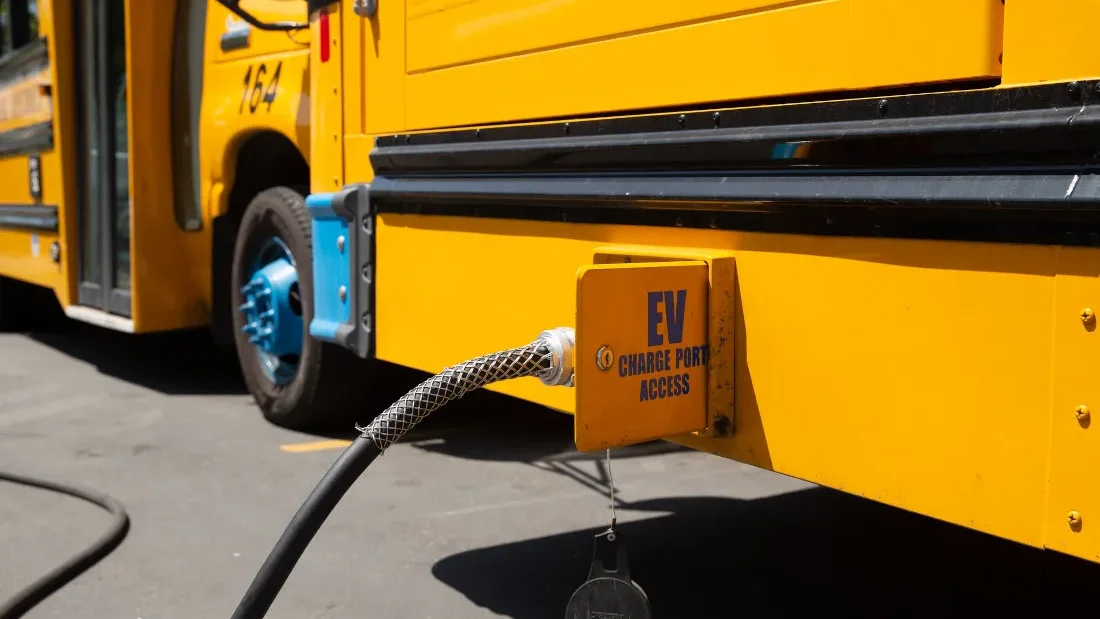
ELECTRIC VEHICLES: A Virginia lawmaker introduces a budget amendment to use $200,000 to establish a working group to identify sources of long-term state funding for the shift to electric school buses after federal funding runs out. (Energy News Network)
ALSO:
ENVIRONMENTAL JUSTICE: The startling disparity between the booming oil and gas industry in Port Arthur, Texas, and the grinding poverty of its mostly Black and brown residents raises hard questions about environmental justice. (Inside Climate News)
SOLAR:
WIND:
PIPELINES: A surge of muddy runoff that appears to be from a Mountain Valley Pipeline construction site into a normally clear spring leads 29 community and statewide organizations to call on Virginia regulators to issue a stop work order. (Roanoke Times, Augusta Free Press)
POLITICS: U.S. House Democrats meet in Virginia to discuss how to sell wins from their historic climate law in the upcoming 2024 election when many of the projects have yet to materialize on the ground. (Politico)
CLIMATE: A Georgia advocacy group organizes teams from congregations and faith organizations across the state to add energy efficiency upgrades and advocate for clean energy, environmental justice and climate action. (WABE)
COMMENTARY: